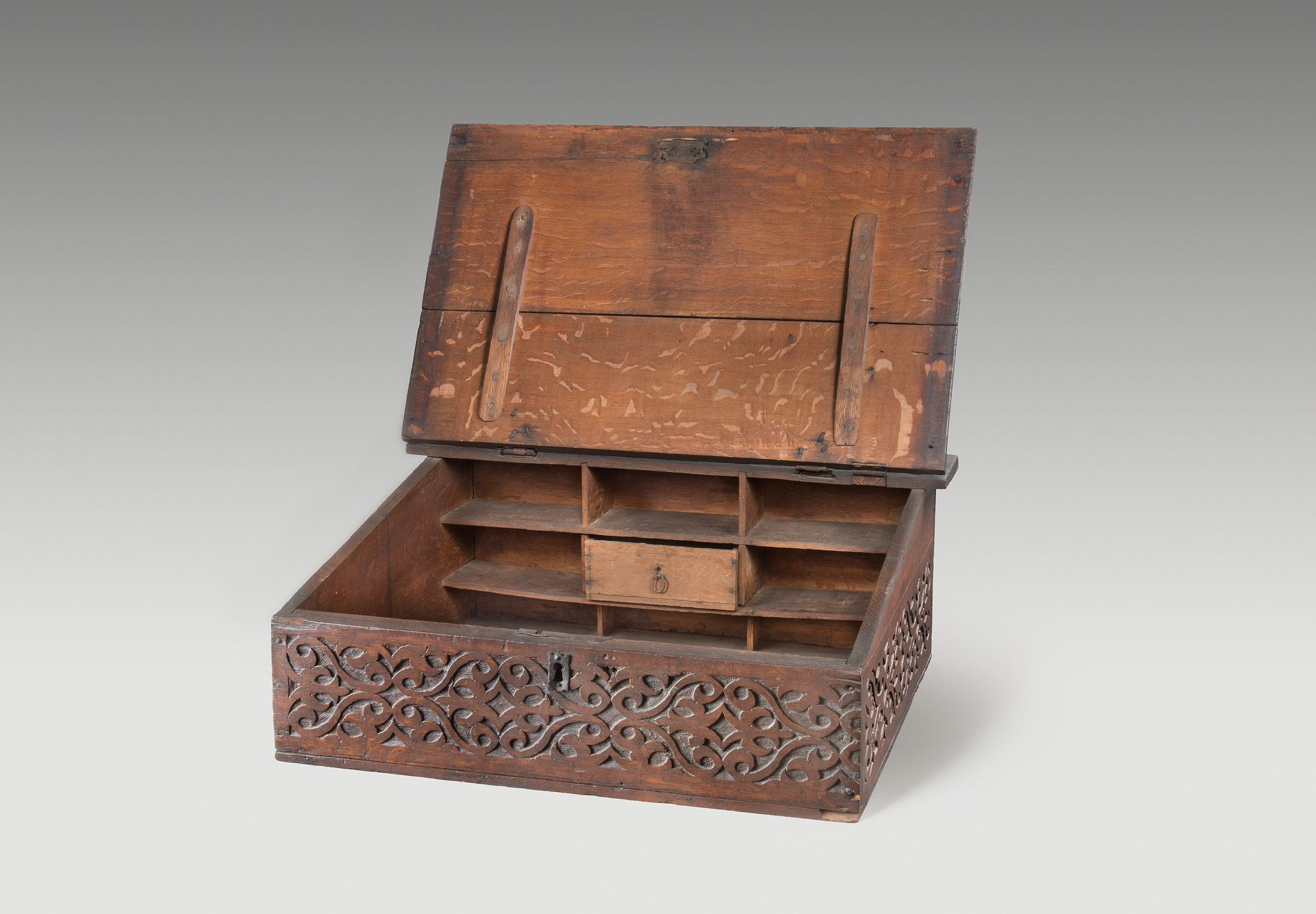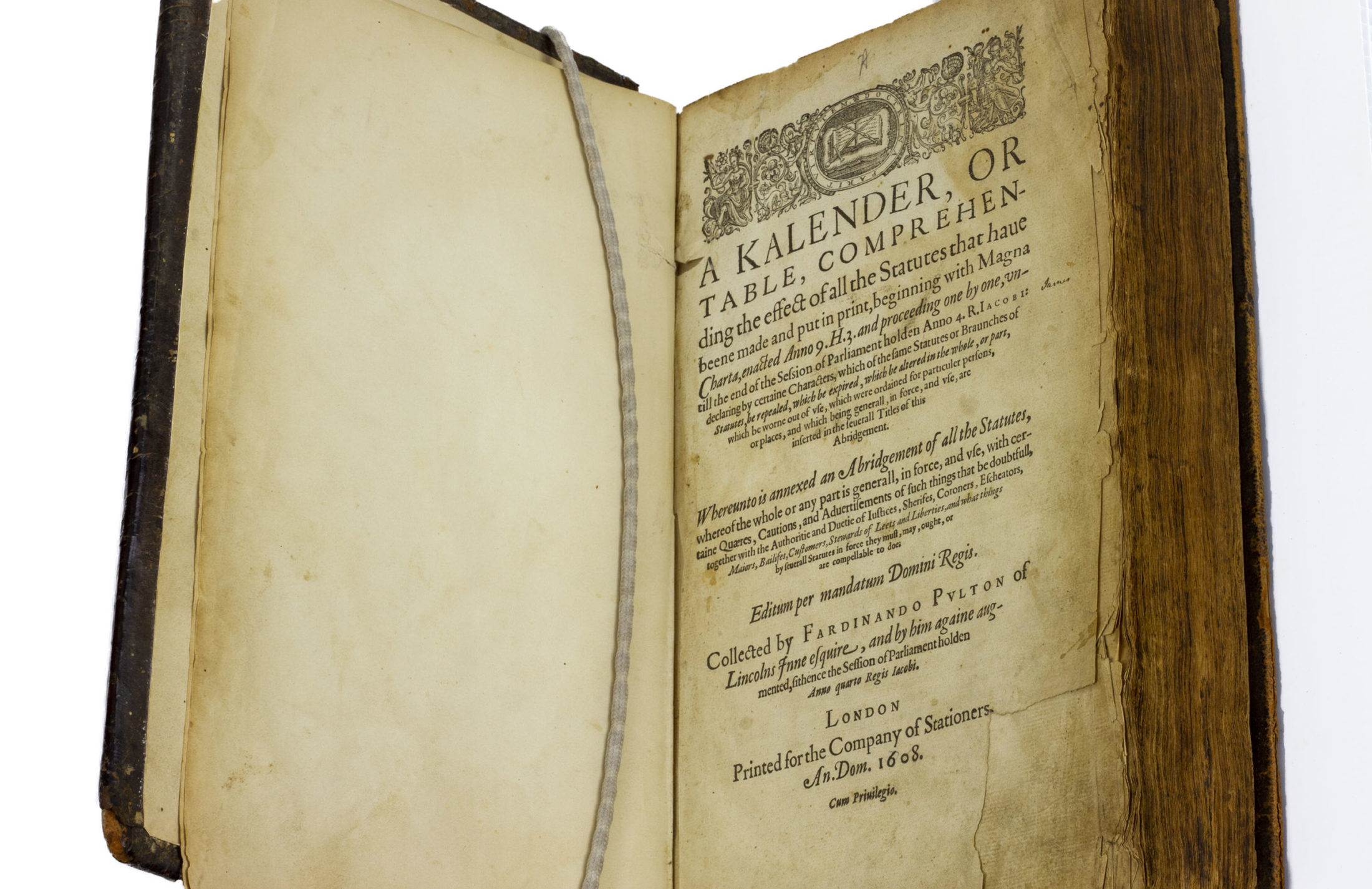“The Governor’s Letters for 1665 (66) (67)”
William Wells and New York’s First Colonial Government
The inside of the desk box includes one surviving storage drawer. Although faint, an inscription survives on the front of the drawer reads “Governor’s letters for 1665 (66) (67).” Previous studies have suggested that this inscription referred to Connecticut’s governor, John Winthrop Jr. However, new research indicates that New York’s first colonial governor, Richard Nicolls, was more likely Wells’ writing partner. The correspondence stored in this box then was likely dedicated to shaping the new colony’s rule of law.

Desk Box (open lid), 1640–60
M1983.200.2
Brooklyn Historical Society
According to family tradition, Wells studied the English law before immigrating to North America. The rediscovery of several legal treatises owned by Wells and donated to LIHS (now BHS) along with his desk box supports this history and explains why Governor Nicolls named Wells to many prominent positions in his government. In 1664, Wells became one of Nicolls’ five-member advisory council. Nicolls subsequently also named Wells High Sheriff of the newly created county of Yorkshire (which included Long Island, Staten Island, and Westchester), and a justice of the peace in the East Riding Court of Assize (later renamed Suffolk County). Immediately following the English conquest of New Amsterdam, Nicolls’ rule was strict: the new colony’s laws were drafted by him with only the assistance of his advisors, including Wells.

A [Legal] Kalendar, or Table (London: Printed for the Company of Stationers, 1608)
Brooklyn Historical Society
Although Wells’ side of their correspondence may not survive, the colonial records of Nicolls’ administration document Wells’ role in managing the affairs of the young colony. As an advisor to Nicolls, Wells helped draft the legal code that became known as the Duke’s Laws. Inspired by the laws and customs of the Massachusetts Bay Colony and New Haven Colony, and incorporating certain Dutch practices from New Netherland, the Duke’s Laws were a comprehensive alphabetical list outlining appropriate behavior in New York Colony.
The Duke’s Laws made no provision for representative government or a colonial legislature, a fact that angered the English settlers on the East End. Their resistance to Nicolls’ laws and refusal to pay taxes or elect local officials plagued Wells’ tenure as high sheriff of Yorkshire. Letters from the governor to Wells throughout the 1660s were filled with demands that Wells subdue local rebellion and enforce the collection of taxes in the towns of Eastern Long Island. It’s no wonder, then, that Wells needed a desk with so much storage to hold his extensive, and most likely anxiety-inducing, government correspondence.